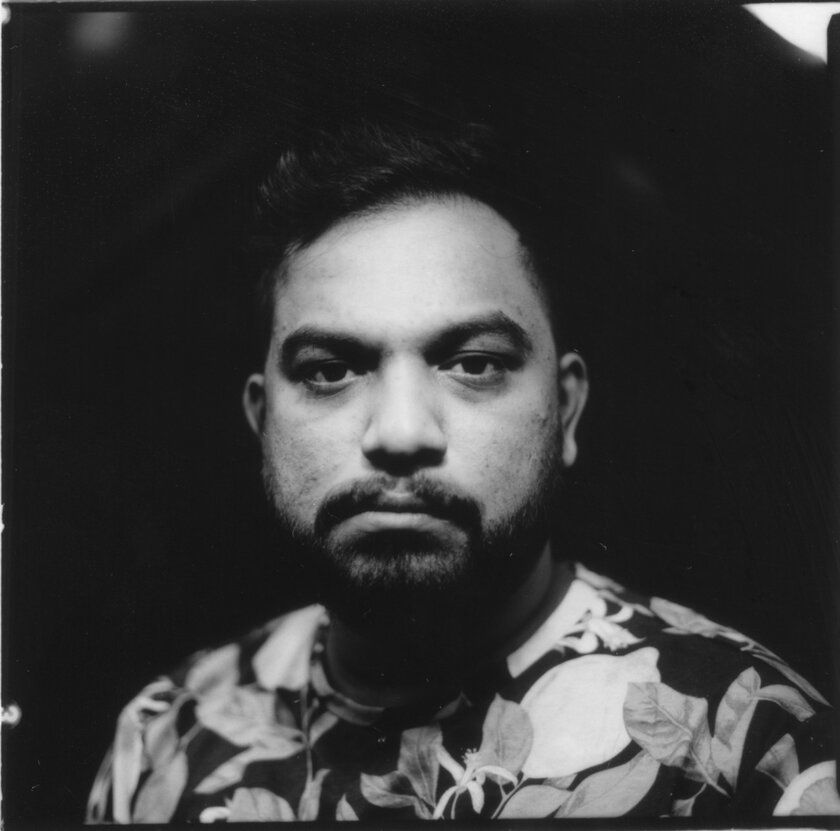Stream the film,
Interviewed & Written by Sana Rizvi
Breaking Barriers - The Casteless Collective today with your WOMEX 20 Digital Registration and meet the disruptive & dynamic protest band from India - The Casteless Collective. Playing an eclectic mix of folk and ‘Gaana’ together with rap and rock, the musicians don’t shy away from discussing caste politics, honour killings & gender inequality, setting the stage for a different sound & society in a country riddled with contradictions.
WATCH FILM HERE !
WOMEX Films's Sana Rizvi, had a chance to speak to Tenma, the music director of the band. He also started the Madras Indie Collective, a platform for local artists, and is co-founder of Madras Media, an indie music festival.
Tell us a bit about yourself and your background when it comes to music?
Though I was born and brought up in a non-musical household in Chennai (formerly known as Madras), my neighbourhood was filled with music and musicians. I started seriously studying music only when I was fourteen. My friends and I who had similar social situations couldn't afford the right kind of instruments, but we managed by borrowing and teaching each other. Our music education took place at rehearsals and performances, not in any school.
I began as a touring and recording musician for various bands as a bass player, performing in festivals and clubs. I then took a break and moved to London to study at Point Blank Music College, where I was exposed to an immense ocean of music and understood the depth of the music industry. On my return to India, I was keen to produce music that was original and rooted in where I come from. I tried every method, but the independent music scene in India was fragmented and almost non-existent. I started a Tamil indie band which went on to see some level of success and the younger generation started finding relevance. The primary industry which dominates the Indian music market is the film music industry and to find an opening to tell stories of independent artists was tough. I then started planning on a broader idea which was to build a working ecosystem for the Tamil music scene- including people for every social construct and various genres. That's when I started the Madras Indie Collective, and that led to initiating The Casteless Collective.
How did you come to form the band The Casteless Collective?
While I was curating it and designing "Madras Medai" the first-ever Tamil indie festival, I got a call from Neelam Culture Centre headed by revolutionary filmmaker and anti-caste activist Pa. Ranjith. I was asked to train "Gaana" singers, a folk tradition from Northern Madras and bring about a band which sang songs on equality. We began auditions for singers and musicians who would become this band. We came together, worked tirelessly for 20 days, wrote 20 songs with 20 artists and performed them to an audience of 7000 people in our debut gig, and since then there has been no turning back.
What is the vision behind the project?
The vision behind the project is to push for a broader dialogue on discrimination and bring about social change through music. The caste system exists in the whole country and not just in the music industry. Every industry has been practising prejudice and discrimination in various ways, be it in conversation and representation. For example, the idea of Indian music is generally equated with classical music, and there is minimal conversation about other forms of music. I am not anti-classical music, but I am speaking about inclusivity which keeps getting avoided because someone gets offended whenever we bring about the conversation about representation. The existing stories in classical songs are to do with the divine and spiritual which disconnects the human from the art. They say art comes from intense suffering- so then what about the stories of the people who are suffering because of a sacred text that divides us. It has taken us many years fighting against all odds to be given a chance to be able to talk about this through song. Still, it's going to take a few hundred more battles before we can take this music to the world to bring forward the stories of the marginalised and the oppressed. We celebrate every single aspect of our life despite the access to anything mainstream, but still, we would like to build an opportunity for future generations so that they don't have to face the battles that we met to get to this point. We are connected by the internet and disconnected by prejudice.
Why is it essential, especially in today's India for a band like TCC to be present in the indie scene?
Except for a select few bands and artists before The Casteless Collective, most have found it uncomfortable to go against the caste system in their work because of the fear of losing out on professional relationships and branding.
Could you talk to us through the history of protest music in India?
This is quite a long story of struggle. There have been various voices who have spoken and rebelled against various forms of discrimination, massacres and problems in this country. I have spoken extensively about it in my mixtape, which can be found here.
What are some of the future projects the band is involved with or up to?
Right now we are working on new songs for TCL and completing our in-house made documentary which brings out a detailed description of our band and our music, elaborating more on the emotions of caste and being casteless.
Is there anything I'm not asking you that you always wish people would ask you about the project?
Well, about the music behind TCL. But that we will keep for another separate conversation.
What do you hope WOMEXicans take away from the film Breaking Barriers- The Casteless Collective?
The film is a good gateway into The Casteless Collective, so viewers understand who we are as individuals in the band. The film also covers the basic premise of caste and the conversations around it.
What music are you listening to right now?
A wide range of artists from Bela Bartok, Conan Mockasin, Japanese Breakfast, Knower, Bokante, Emman, Koffee, Raveena Aurora and Nusrat Fateh Ali Khan.
In what or where do you find hope in these unprecedented times?
Ever since the lockdown, people are starting to take notice that we are divided only by borders and passports, but united in this feeling of uncertainty which is the same across the world. I take solace in the fact that at least a percentage of people are coming together with a raised collective consciousness, and the purpose of existence will hopefully start making sense. I hope when the dust settles, a new wave of thinking comes about for a world without judgement and discrimination.
WATCH FILM HERE !
FROM THE 15-25 OCTOBER 2020 WITH YOUR WOMEX 20 DIGITAL REGISTRATION.
article posted by:Sana Rizvi, Piranha Arts



